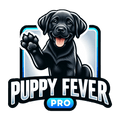737-215-3211

Puppy Chewing Problem: Effective Solutions and Prevention Tips for New Pet Owners
If you're a new puppy owner, you may be wondering, why does my puppy chew so much? and more importantly, how can I prevent this? Fret not, this guide is here to help you understand and manage puppy chewing effectively.
Understanding Puppy Chewing
Why Puppies Chew
Like human babies, puppies explore the world by putting things in their mouths. This can be a normal part of development, but it can also become destructive. Additionally, puppies chew to relieve pain that might be caused by incoming teeth.
How Puppies Choose What to Chew
Puppies may chew for a variety of reasons, such as boredom, anxiety, or curiosity. They often choose objects that are interesting in texture or taste, or items that they see their human family using.
Dealing with Puppy Chewing
The Importance of Supervision
Just as you wouldn't leave a toddler alone in a dangerous environment, supervision is key to preventing unwanted chewing. When you can't supervise, consider using confinement strategies such as crates or puppy-proof rooms.
Utilizing Chew Toys
Different Types of Chew Toys
There's a myriad of chew toys available on the market. It's essential to find ones that are safe and appealing for your puppy. Try a variety, including hard rubber toys, edible chews, and soft plush toys.
Redirecting the Chew Instinct
When you catch your puppy chewing something inappropriate, calmly redirect them to a suitable chew toy. Remember, it's important to praise your puppy for choosing the right objects to chew.
Managing Your Puppy's Environment
Puppy-Proofing Your Home
Remove potential chew hazards around the house, such as electrical cords, and shoes. Always remember to keep your belongings out of your puppy's reach.
Creating a Safe Play Area
Designate a puppy-safe play area where your puppy can freely explore and play without the risk of getting into something they shouldn't.
Prevention Techniques for Puppy Chewing
Training Your Puppy
Teaching Bite Inhibition
Puppies learn bite inhibition from their littermates, but once they're part of your family, it's your job to continue that education. This involves teaching them how much pressure is acceptable when using their mouths.
Positive Reinforcement Training
Reward your puppy for good behavior. Use treats, praise, or toys as rewards. Remember, training should be a fun and rewarding experience for both of you.
Nutrition and Health
The Role of Nutrition
A balanced diet can influence your puppy's behavior, including chewing. Certain deficiencies might lead to increased chewing, so be sure to provide a nutritionally balanced diet.
Regular Vet Check-ups
Regular vet check-ups are essential to ensure there are no underlying health issues causing excessive chewing.
Regular Exercise and Mental Stimulation
Physical exercise and mental stimulation will prevent boredom, which can often lead to destructive chewing.
Dealing with Persistent Chewing Issues
Consulting a Professional
If your puppy's chewing seems excessive or if they are chewing on themselves, it's worth consulting a professional dog trainer or a vet.
Medications and Specialized Products
Certain products can help discourage chewing, like deterrent sprays. In extreme cases, your vet might recommend medication.
While puppy chewing can be a challenging phase for new pet owners, remember that this is a normal part of your puppy's development. With patience, training, and a few preventive measures, you can help your pup outgrow this behavior and enjoy a harmonious life together.
FAQ
How long does the puppy chewing phase last? The puppy chewing phase typically lasts until around six months to a year old, although this can vary depending on the puppy.
Are chew toys safe for my puppy? Yes, as long as they are size-appropriate and made from safe, non-toxic materials.
Can I use bitter spray to prevent my puppy from chewing? Yes, bitter sprays can be an effective deterrent for some puppies. However, always try redirection and positive reinforcement first.
Is it normal for my puppy to chew on himself? While some self-chewing can be normal grooming behavior, excessive or frantic chewing can indicate a medical issue and should be evaluated by a vet.
How can I exercise my puppy's mind to deter chewing? Interactive toys, training exercises, and socialization with other dogs can provide great mental stimulation for your puppy.




Leave a comment